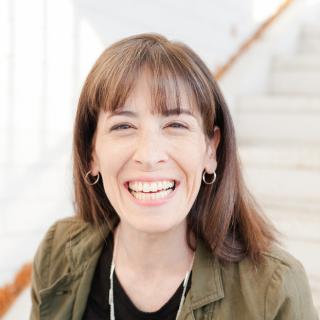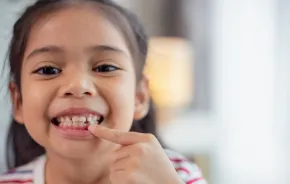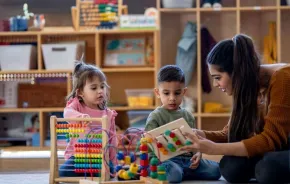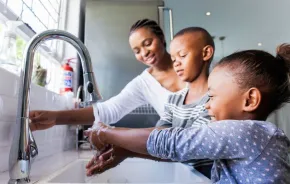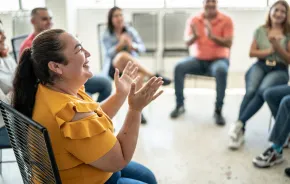
My mother loves to tell the story of bringing my twin brothers home from the hospital. My parents’ car, a 1975 Ford Maverick affectionately known as “The Lemon” because of its color and reliability, carried their sudden family of seven from Philadelphia back to Maryland. In the back seat, each of my older sisters, ages 7 and 9, held a newborn twin.
My mother hadn’t given birth to these twins, my brothers. That had been my biological mom, her sister-in-law, who died shortly after childbirth.
She was, suddenly, a new mother once again, the nine months of pregnancy condensed into a few days’ time.
How will this work? she must have wondered. How will I take care of them? What happens to all the plans I made, now that my children are in school?
There were no car seats. No cribs. No preparation. My brothers slept in laundry baskets next to their bed, one of them prone to episodes of apnea. My family’s community rallied, offering blankets, clothing and food. The twins became everyone’s children. The older siblings learned how to change diapers and give bottles. These were my parents’ sons, not nephews. It was never a question.
Two years later, I was 5 and joined the family. The details are complicated and unimportant, but again, the parents who raised me didn’t blink.
Motherhood means doing what is best for your children, whether it brings you personal joy or personal agony.
This time, instead of two cute, squirmy babies, they got an emotionally damaged kindergartner. Now a mom myself, I sometimes think about how I would have handled that, suddenly having to parent someone else’s child. I wonder if I could do half the job my parents did.
Motherhood means doing what is best for your children, whether it brings you personal joy or personal agony. My mom — the one who raised me even if she wasn’t biologically related to me — lived this on a daily basis. I never saw her so much as lie down for a nap.
For my mother, this also meant having to parent three children who had a different mother before her. As such, she also had to answer all of the inevitable questions and musings of those who lost the woman who gave birth to them.
She made room for our family of origin by making sure we stayed in touch with relatives, visiting them often and seeking out any answers she didn’t have. She even tried to preserve various customs and pass them along, although the attempts were often less than successful, like the time she prepared and insisted on celebrating an authentic Seder meal.
Not that long ago, at a church picnic, a sweet older woman asked my mother, “Whatever happened to your nephews? The twins?” My mother stared at her blankly, replying, “I don’t have any twin nephews. You must have me confused!”
Her answer was sincere. She had no idea whom this woman was talking about because she never had twin nephews — just twin sons.




